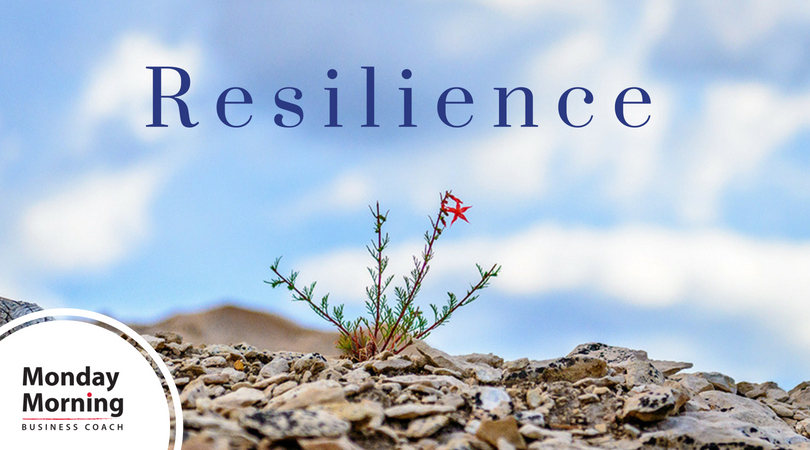
One of the most powerful skills we see in successful clients, colleagues, and friends, is the ability to pause. When you pause and determine how to respond instead of reacting to, pretty much, ANY situation that you face, you’re more likely to succeed.
Pausing is an important aspect of Resilience.
Being resilient is an advantage – in your work, your family, and your life. As you know, life throws us changes, pressures, and stressors that can be debilitating if you let them.
Resilience is the ability to adapt to these changes and stressors in order to have a productive life and a healthy you!
In Al Siebert’s book, “The Resiliency Advantage”, he explores the ways that you can increase your resilience. Despite what many people think, resilience isn’t a skill you’re born with, it’s a skill that you can (and should) develop – regardless of your age.
Pausing to control your emotional reactivity is the first step in our leadership model and it’s one of the first steps to increasing your resilience. The other important steps, as Al Siebert discusses in his book, include curiosity, paradoxical capabilities, and a synergistic attitude.
What does that really mean?
- Pausing: Taking a moment to interrupt your emotional reaction to form a reasoned response.
- Curiosity: Learning all you can about the situation so that you can solve the challenge you’re facing.
- Paradoxical Capabilities: The ability to hold two opposing ideas or concepts at any one time.
- Synergistic Attitude: Understanding that the sum of the pieces is greater than any individual piece.
In his book, Siebert states:
“Resilience is more important than ever in today’s world. The volatile and chaotic period we are going through will not end soon. To sustain a good life for yourself and your family, you must be much more resilient than people had to be in the past. People with resiliency skills have a significant advantage […]. In this world of life-disrupting, nonstop change:
- Corporations with highly resilient employees have an advantage over their less resilient competitors.
- During downsizing, a resilient worker with a wide range of skills has a better chance of being kept on.
- When many people are applying for one job, a resilient person has a better chance of being hired.
- When your old job skills are no longer needed, you are quick to learn a new way to earn an income.
- During economic hardship, resilient people give their families a better chance of pulling through and bouncing back.
- Resilient people help their communities get through hard times better.
- Resiliency is crucial when there are the added challenges of physical injury or living through a terrorist attack.
- A resilient person is best at making difficult situations work well.
- Resilient people are less likely to become ill during difficult times.”
Resilience means that when hit with a stressor, you see it for what it is, you let yourself experience the loss or grief associated with it, you figure out how to cope with it, and then you figure out how to thrive in the face of it.
Take some time today to think about your resilience skill level and whether it could use a boost! Times are not going to get easier, so let’s make sure that you’ve got what it takes to deal with life as it happens.
We’re here for you
– Linda, Stephanie, and Heather
If you’d like support in stepping into your power and increasing your resilience, contact us today! Our Leadership Coaches can help.

